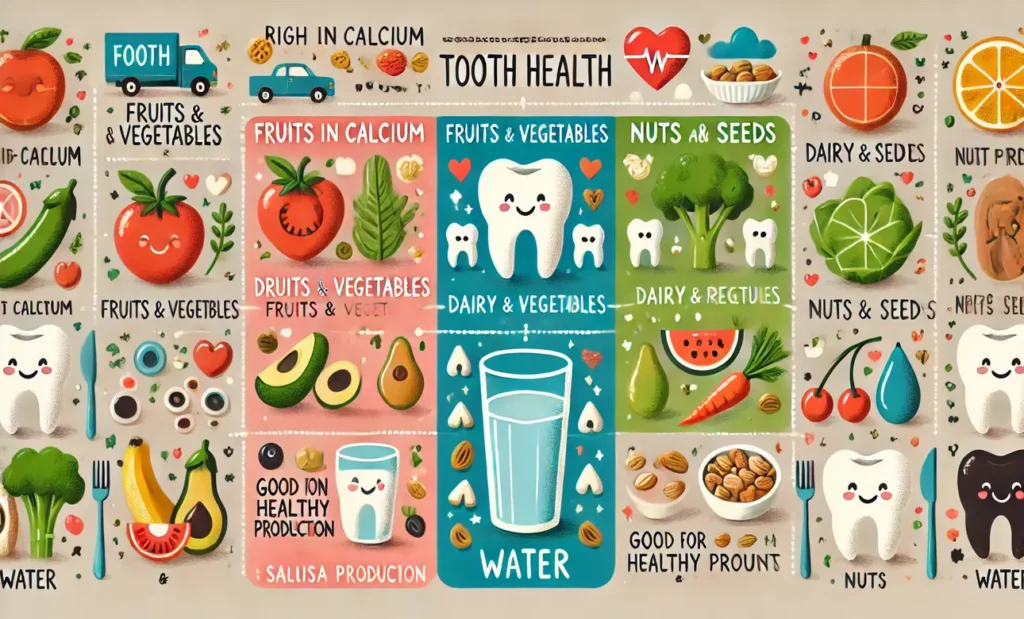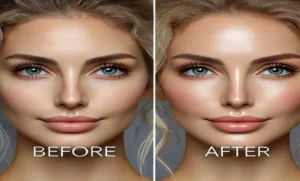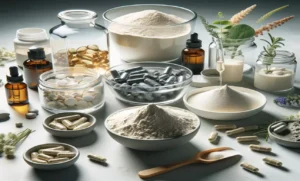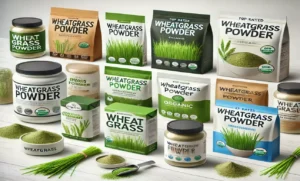How to Fix a Cracked Tooth Naturally

A cracked tooth may result in considerable pain, distress, and discomfort. Although professional dental care is often necessary, In addition to professional dental treatment, certain natural approaches may help relieve symptoms and support the healing process. This guide looks at how to fix a cracked tooth naturally.
- Causes of Cracked Teeth
- Symptoms of a Cracked Tooth
- Things to Do Immediately
- Natural Remedies for Cracked Teeth
- Garlic
- Dietary Changes to Promote Healing
- Lifestyle Changes that Prevent Further Damage
- When You Should Seek a Dental Professional
- Preventive Measures
- FAQs About How to Fix a Cracked Tooth Naturally
- Conclusion
Causes of Cracked Teeth
Different factors contribute to weakening teeth’ structure and make them prone to fractures.
Trauma or Injury
Physical accidents or falls always lead to severe damage to teeth. A tooth can crack or even split when it undergoes an abrupt, forceful impact. This happens mostly during sports injuries, car accidents, or when the face receives a direct blow. The result may be immediate fractures or small cracks that worsen over time.
Biting Hard Objects
Eating hard items such as ice nuts, candies, and bones causes teeth cracks. These substances exert too much pressure on teeth beyond their limits, breaking them into pieces. One should always take note of the hardness of these things, for they can easily compromise the integrity of the enamel layers in our teeth.
Teeth Grinding (Bruxism)
Usually, bruxism is associated with chronic grinding of one’s teeth while asleep until much harm has already taken place without one realizing it. When this condition persists, the pressure applied on these dentitions results in the loss of enamel, leading to increased chances of more crack lines occurring. Continually grinding this way softens our teeth, making them increasingly vulnerable to cracking over time.
Large Fillings or Dental Work
Extensive dental procedures, especially those involving large fillings, can weaken tooth structure. Large fillings diminish some of the natural strength in a tooth replaced by them. Moreover, the materials used in fillings change their sizes when heated, stressing respective teeth and possibly causing cracks.
Age-Related Wear
Our dental health gradually fades with age due to various reasons, such as years of chewing foods, grinding some types, and exposure to multiple drinks. This means that over time, the teeth start thinning as the outer layer of protection called enamel wears out, making them brittle and prone to cracks and other types of fractures. Thus, this standard aging process puts elders at a higher risk for such dental conditions as cracked teeth.
Identifying the factors that contribute to this issue can entrust you to take proactive steps to safeguard your teeth from cracking. Regular visits to the dentist, staying away from hard foods, managing stress to prevent bruxism, and maintaining proper oral hygiene are vital to having strong and healthy teeth. Whenever there is suspicion about cracked teeth, patients should not hesitate to consult with their dentists for further advice on how they can avoid any further damage and/or complications.
Symptoms of a Cracked Tooth
Early identification of a cracked tooth prevents additional harm or complications. These are the common signs:
Pain While Chewing
One very telling sign of a cracked tooth is pain when chewing or biting something hard. Usually, this pain fades away after some time, especially when one applies pressure to it while eating anything using this damaged part… The discomfort may be sharp and sudden, indicating that the crack affects the tooth’s structure.
Sensitivity to Hot and Cold
Another symptom includes increased sensitivity to hot and cold foods and beverages. This exposes inner layers, including pulp connected with dentin, once a person eats something hot or cold, leading to heightened sensitivity in cases where people drink anything whose temperature has changed drastically due to food consumed by others that day.
Occasional Toothaches
Unexplained sharp pains occasionally signify a cracked tooth. They come and go, and biting in specific ways or eating certain foods often triggers them.
Gum Swelling
The gum tissue around the impacted tooth may become inflamed and swollen, which can indicate a crack. This swelling may be caused by inflammation or infection due to the breakage.
Visible Lines and Cracks
Visible cracks or lines can sometimes form on the surface of your teeth. These range from hairline fractures called ‘craze lines’ to more significant breaks where the whole tooth splits apart.
Identifying these signs early and seeking immediate dental attention will enable efficient management while averting further damage. If you have any of these symptoms, see your dentist for a thorough examination and proper treatment.
Things to Do Immediately
Taking action immediately after you suspect you have a cracked tooth can prevent more damage and alleviate some pain. Here are several essential steps:
Rinse mouth with Warm Salt Water.
Take start by rinsing your mouth with warm saltwater. Mix one teaspoonful of salt with warm water and swish it all around your mouth. The solution cleanses the affected area, thus minimizing the chances of infection and reducing inflammation. Salt is, in fact, beneficial to healing since it acts as a natural disinfectant.
Avoid Hard Foods
Don’t eat hard foods such as nuts, ice, or hard sweets because they worsen the condition when chewed. So, eat soft foods that require minimal chewing, such as yogurt, mashed potatoes, or smoothies, to avoid stressing the cracked tooth and prevent further injury.
Use Dental Wax
If the crack causes discomfort or has sharp edges, apply dental wax over it. This dental wax creates a protective layer that can reduce irritation while avoiding further harm. Soften a small piece of wax in your hand and gently press it over the crack.
Following these actions will allow you to handle the immediate signs of a cracked tooth so that no more harm is done. However, it’s necessary to visit a dental professional as soon as possible for appropriate evaluation and treatment.
Natural Remedies for Cracked Teeth
Cracked teeth can be distressing. Although professional dental attention is often needed, several natural remedies can help relieve and speed up healing. Here are some effective techniques:
Saltwater Rinse
A saltwater rinse is simplest and most effective natural remedies for a cracked tooth. A teaspoonful of salt in warm water rinsed around your mouth several times daily will do the trick. Saltwater is helpful in reducing inflammation, cleaning out the mouth, and preventing infection due to its alkaline environment, which inhibits bacterial growth. It’s ideal for regular use because it’s mild and relieves pain or swelling immediately.
Clove Oil
Clove oil contains eugenol, which acts as an anesthetic and antiseptic agent, making it quite useful. To use it, apply a few drops and place the cotton ball directly on top of the cracked tooth. This could numb the pain slightly while averting the chances of getting infected. Additionally, clove oil has anti-inflammatory properties. The gum tissue surrounding the impacted tooth may become inflamed and swollen, making it a valuable remedy for dealing with symptoms associated with cracked teeth.
Turmeric Paste
Combining powdered turmeric with water creates a thick paste, and for this reason, turmeric has emerged as an excellent spice. Take some turmeric powder and combine it with some water, and it will become a stiff paste. Gently apply this paste to the chipped tooth and surrounding gums. The curcumin present in turmeric can reduce pain, ease inflammation, and check against bacteria so that wounds can heal faster.
Garlic
Garlic is known for its germicidal properties. Chewing or smashing one garlic clove and putting it directly on the tooth crack would not only help in the fight against infection but also minimize pain. Allicin released from the garlic acts as an antibacterial solid, which helps keep the area clean and free of harmful bacteria.
Coconut Oil Pulling
A traditional Ayurvedic oral care method called oil pulling, which uses coconut oil, has been proven effective over time. Another way to use it is to swish one tablespoonful of coconut oil inside one’s mouth for 10-15 minutes each day while fasting during morning hours. In doing so, bacteria are significantly minimized, toxins are flushed out, and oral hygiene is promoted. Lauric acid contained in coconut oils has antimicrobial properties that offer dental health preservation and reparation of broken teeth.
Hydrogen Peroxide Rinse
Hydrogen peroxide is a strong disinfectant that reduces bacterial numbers within the oral cavity. You may dilute hydrogen peroxide with equal amounts of water and then rinse your mouth thoroughly using this solution. It prevents infections and aids in repairing cracks within damaged teeth; however, sometimes there might be other complications, such as bad breath due to plaque reduction, which can be removed by hydrogen peroxide.
Aloe Vera
The soothing nature of Aloe vera makes it perfect for healing purposes. Aloe vera gel may be dabbed onto areas with cracked teeth and gum to alleviate pain, which causes swelling. Also, it is packed with antibacterial contents that can help fight germs, leading to quick healing. It is soft and safe on sensitive parts of the mouth.
Guava Leaves
Guava leaves have an anti-inflammation effect as well as antimicrobial properties. You can also eat fresh guava leaves or prepare a rinse by boiling them in water which will assist you to decrease inflammation and pain. Guava leaves also contain compounds that can fight against oral infections while maintaining good oral health.
Tea Tree Oil
Tea tree oil has natural antiseptic abilities that can reduce infection. By mixing a few drops of tea tree oil with water can be used as a mouthwash for antibiotic purposes. This helps disinfect the mouth while facilitating the healing of broken teeth. However, keep in mind that tea tree oil is very strong, so it should not be swallowed but swallowed with caution.
These home remedies offer relief and promote healing in cases of cracked teeth. However, one should note that these are only temporary solutions available at home, meaning that professional dental care is needed to address and solve the cases permanently. To adequately address and treat a cracked tooth, seek professional dental care. Regular dental checkups and proper oral hygiene practices can help prevent additional dental problems.
Dietary Changes to Promote Healing
A diet is vital during healing after cracking your tooth because it provides essential nutrients necessary for recovery. The foods you eat can have significant impact on the healing process for a cracked tooth. Here are some important dietary changes to think about:
Increase Calcium and Vitamin D Intake
Calcium and vitamin D are instrumental in keeping teeth more robust all day—calcium does remineralization. In contrast, vitamin D helps absorb calcium into the body (Johnson Line 8). Include milk products, including yogurt, cheese, and milk, in your program. Furthermore, leafy green vegetables like kale and spinach, as well as certain types of fish like mackerel and salmon, are excellent sources of these important nutrients.
Consume Soft and Easy to Chew Foods
To avoid applying undue pressure to the broken tooth, eat soft foods that are low-resistance to mastication. Examples of suitable options include mashed potatoes, smoothies, yogurt, scrambled eggs, and soups. These will reduce the risk of worsening the crack and making eating uncomfortable if it is already affected.
Avoid Sugary or Acidic Foods
Crack worsening can be caused by consuming sugary and acidic meals. The bacteria present in your mouth consume sugar, leading to tooth decay, while cracked tooth gets worse with time. On the other hand, acidic beverages like sodas and fruits such as lemon tend to dissolve the enamel, causing its damage, thus making the crack more visible. Cutting down or avoiding these kinds of food can save your tooth from further damage as it heals.
By doing this, you create an environment that helps your cracked tooth heal better and supports overall oral health.
Lifestyle Changes that Prevent Further Damage
The following are some specific lifestyle adjustments one may make that would help prevent additional damage to a fractured tooth:
Use Mouth Guards
Wearing a mouth guard when you grind your teeth at night (a condition called bruxism) acts as a protective barrier, reducing the impact on teeth during grinding. They cushion teeth, hence preventing cracks from getting worse.
Do Not Bite Hard Objects
Avoid chewing ice cubes, hard sweets, and other complex substances. These often apply excessive pressure on teeth, resulting in additional cracks or even fractures. Eating softer foods reduces pressure and stress on the teeth.
Maintain Good Oral Hygiene Practices
Everyone should adhere to good oral hygiene practices. Brushing two times daily using fluoride-based toothpaste and flossing every day with plaque removal are key issues here, too. Regular dental care can strengthen our teeth so they don’t suffer from cavities, which may worsen their cartonnage
Bruxism Disorder
For individuals with bruxism, stress management techniques such as meditation, yoga, or counseling may help reduce the tension that contributes to teeth grinding. Another way is to see a dentist for treatment options, such as mouthguards that fit precisely to your mouth or dental splints that aid in managing bruxism and safeguarding your teeth.
Doing this will not only protect your teeth from further damage but also maintain overall oral health, thus reducing the chances of complications associated with cracked teeth. Long-term dental health requires regular checkups and a proactive approach to dental hygiene.
When You Should Seek a Dental Professional
Although natural remedies can temporarily relieve pain caused by cracked teeth, visiting the dentist in severe cases is essential. Here are some scenarios warranting a visit to the dentist:
Persistent Pain
Prolonged pain may indicate an underlying problem necessitating professional attention. It indicates a crack in the nerve or pulp of the tooth, where immediate action is needed.
Swelling and Inflammation
Gum swelling and inflammation around the affected tooth could indicate the presence of infection. If nothing is done soon enough, infections can spread, leading to other health issues. Proper management and treatment of illness still call for expert intervention.
Difficulty Eating
This indicates that the severity of the crack might be so bad that you find yourself having problems when biting or chewing foodstuffs normally. This means that tooth structure has been compromised, hence requiring assessment as well as treatment by a dentist.
Infection Signs
Indications like pyrexia, suppuration, or painful swelling demonstrate that something is extremely wrong, possibly an infection. These symptoms necessitate immediate medical intervention to control the spread of the disease and safeguard one’s well-being.
Professional dental support will help in such cases by diagnosing them accurately and treating them accordingly. Bonding, crowns, or root canal treatments are some of the ways a dentist may restore the tooth’s strength and alleviate pain. Disregarding these symptoms can result in the issue worsening and necessitating more involved dental treatments. Scheduling routine dental examinations is essential for the timely detection of comparable issues.
Preventive Measures
Preventing chipped teeth and preserving oral wellness necessitates proactive measures such as:
Regular Dental Checkups
Scheduling routine dental appointments enables the identification and resolution of oral health concerns before they escalate. The dentist always examines your mouth for signs of plaque accumulation, weariness, decay, or minor cracks that could become major problems if left untreated. Professional dental cleanings, which involve the removal of plaque and tartar accumulations, are also performed as part of regular check-ups.
Proper Brushing and Flossing
This means that good daily oral hygiene practices are essential if one wants one’s teeth to remain healthy throughout life. It’s recommended to brush teeth twice a day using a soft-bristled toothbrush and fluoride-containing toothpaste. Remove food particles between teeth and gum lines daily by flossing them out properly. Occasionally, we ignore small things, but those small things could cost us dearly when it comes to oral cavities; therefore, proper brushing habits are what make our teeth strong enough to resist decay-causing microorganisms’ attacks.
Use of Fluoride Toothpaste
Fluoride toothpaste strengthens tooth enamel, preventing future decay. This chemical element hardens teeth so much that even sugar can’t harm them again.
Avoiding High-Risk Foods
Hard candies are examples of foods that can destroy one’s teeth, while others, such as ice, have hidden risks. These substances could be high-intensity sugar or acids, which can lead to enamel erosion and subsequent weakening of teeth in the future.
By adding these measures into your daily routine, you can considerably lower the odds of having cracked teeth and improve your dental health for a long time. Good oral hygiene, regular dental visits, use of fluoride, and careful eating are the basic rules leading to strong and healthy teeth.
FAQs About How to Fix a Cracked Tooth Naturally
What is Treated by the Dental Surgeon?
A broken tooth is a fracture in its structure where the level and degree vary.
Which are Teeth Breakers?
Contributing factors may include accidents, biting hard stuff, clenching jaws together forcefully, and numerous fillings used over time or age, among other physiological processes that make an individual vulnerable to this condition.
Can Cracks Heal Naturally?
Some cracks might be resolved naturally, but most will require immediate medical attention; otherwise, more damage will occur.
Which Symptoms Can Clearly Show That My Tooth Has Been Cracked?
Everything from gum swelling and intermittent pain, whenever food particles are stuck between my gums to toothache when I bite down can indicate damage in one’s mouth due to cracking activity.
How Can You Keep Your Teeth from Breaking?
Use a protective guard during sports activities, avoid taking hard foods, and maintain good oral hygiene practices.
Do Natural Remedies Work for Treatments for Cracked Teeth?
Natural remedies serve as temporary pain relief methods or even enhance healing processes in minor cases only.
At what point should dental care be sought for a chipped tooth?
If you experience constant pain around your jaw area anytime you eat, drink, or brush, then this indicates that something might have happened, leaving you with a cracked tooth.
Can my healing be affected by what I eat?
Meanwhile, consuming food high in sugars should be minimized if not stopped completely. One should concentrate on eating meals that contain calcium and vitamin D, among others.
How Do Teeth Look When They Crack?
Some common symptoms include pain after chewing, sensitivity to temperature changes, and visible cracks on the enamel layer.
What are some of the best methods for managing pain caused by cracked teeth?
Clove oil, cold compresses, and saltwater rinses are home remedies that can help reduce pain.
Conclusion
Fixing a cracked tooth right away can prevent complications and help it heal. Going to the dentist is essential in this case, while natural treatments may offer a temporary solution. To mitigate this problem from ever happening again, you should adopt some preventive measures and maintain good oral hygiene practices that will protect your teeth from cracking, thereby giving you a healthy smile.






